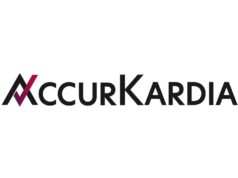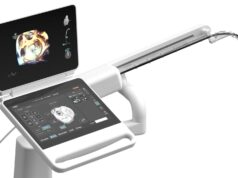
Royal Philips has announced the launch of the Philips electrocardiogram (ECG) artificial intelligence (AI) marketplace—a platform that gives cardiac care teams access to multiple vendor offerings all in one central location to help clinicians manage and implement AI-powered diagnostic tools more easily. AI-driven health technology company Anumana is the first organisation to leverage Philips’ new platform, with its US Food and Drug Administration (FDA)-cleared ECG-AI low ejection fraction (LEF) algorithm set to be made available on the marketplace.
A press release details that the Philips ECG AI marketplace will enable US hospitals and health systems to integrate validated algorithms into their workflow, and existing Philips infrastructure. The marketplace also gives cardiac care teams direct access to a broad portfolio of AI tools at the point of care, helping to reduce the time it takes for clinicians to review ECG results and fast-track diagnoses for patients. The platform’s ability to manage vendor connections for each AI solution further improves operational costs and efficiency by removing the need to devote hospital IT resources to overseeing the different interfaces for every tool, Philips claims.
“Through the Philips ECG AI marketplace, we’re building a more flexible and connected approach to innovation in cardiac care,” said Stefano Folli, business leader, ambulatory monitoring and diagnostics, Philips. “The Philips ECG AI marketplace meets a growing need for easier access and management of AI-enabled tools to improve the healthcare experience for clinicians and patients. Our collaboration with Anumana is a strong example of how these tools can support both earlier detection of heart diseases and accelerate patient care.”
Anumana’s US FDA breakthrough-designated LEF algorithm—now integrated across Philips’ ECG portfolio through the Philips ECG AI marketplace, including IntelliSpace ECG and Philips cardiographs—analyses a standard 12-lead resting ECG to identify reduced ejection fraction, which is an early indicator of heart failure. The release adds that, with Anumana’s algorithm now available through the Philips ECG AI marketplace, healthcare providers can access AI-powered cardiac insights during routine ECG ordering and interpretation, supporting timely and informed care.
“We’re proud to be the flagship offering on the Philips ECG AI marketplace,” said Simos Kedikoglou, president and chief operating officer at Anumana. “Working with Philips expands access to our ECG-AI technology through a trusted platform, starting with our cleared LEF algorithm and extending to our full suite of point-of-care algorithms as they receive FDA regulatory clearance. Anumana’s AI algorithms, including for LEF detection, have been extensively evaluated in studies involving more than 150,000 patients and are supported by nearly 100 peer-reviewed publications. By making early detection tools available across multiple platforms, this collaboration helps clinicians intervene sooner, reflecting a shared commitment to improving outcomes for patients at risk of heart failure.”
This collaboration with Anumana is part of Philips’ continuing expansion to open its ECG ecosystem to third-party solutions in order to ease integration and support clinical decision-making. By making AI diagnostics more available to cardiac care teams, Philips is aiming to improve access to early cardiovascular disease detection and care.









